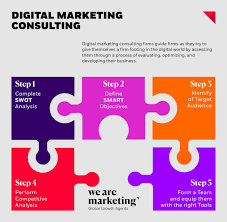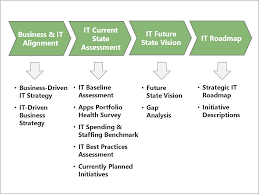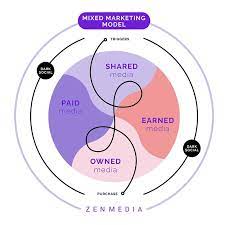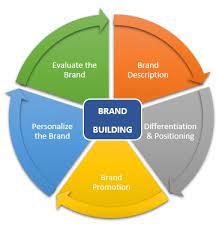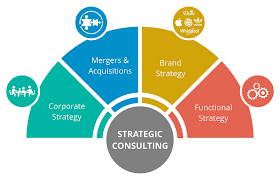Brand Building: Creating a Lasting Impression
In today’s competitive business landscape, building a strong brand is more important than ever. A well-crafted brand can be the key differentiator that sets your business apart from the rest. It is the essence of your company, representing its values, personality, and promise to customers. Brand building goes beyond just designing a logo or choosing a catchy tagline; it is a strategic process that requires careful planning and consistent execution.
So, what exactly is brand building? Simply put, it is the deliberate and systematic effort to create and shape perceptions about your business in the minds of your target audience. It involves establishing a unique identity, fostering customer loyalty, and creating an emotional connection that resonates with consumers.
One of the first steps in brand building is defining your brand strategy. This involves understanding your target audience, conducting market research, and identifying what sets you apart from competitors. Your brand strategy should encompass your mission statement, core values, positioning in the market, and key messages you want to convey.
Consistency is crucial when it comes to brand building. Every touchpoint with your customers should reflect your brand identity – from your website and social media presence to packaging design and customer service interactions. Consistency builds trust and helps establish credibility in the minds of consumers.
Another essential aspect of brand building is storytelling. People connect with stories on an emotional level, so weaving a compelling narrative around your brand can be incredibly powerful. Share stories about how your business started, its journey so far, or how it has positively impacted customers’ lives. These stories humanize your brand and create an authentic connection with consumers.
Building strong relationships with customers is at the heart of successful brand building. Engage with them through social media platforms, respond promptly to their queries or concerns, and consistently deliver exceptional experiences at every touchpoint. By nurturing these relationships over time, you can foster customer loyalty and turn them into brand advocates who will willingly promote your business to others.
In today’s digital age, online presence plays a vital role in brand building. Establishing a strong online presence through an optimized website, active social media channels, and relevant content marketing can significantly enhance your brand’s visibility and reach. Engage with your audience by sharing valuable content, participating in relevant conversations, and showcasing your expertise.
Lastly, monitoring and evaluating the impact of your brand building efforts is essential. Regularly assess how your brand is perceived in the market, gather feedback from customers, and measure key performance indicators such as brand awareness, customer loyalty, and market share. This data will help you refine your strategies and make informed decisions to further strengthen your brand.
Brand building is not a one-time activity; it requires continuous effort and adaptation to stay relevant in a dynamic market. By investing in building a strong brand, you can create a lasting impression that resonates with customers and sets you apart from competitors. Remember, a well-built brand is not just about selling products or services; it is about creating an emotional connection that builds trust and inspires loyalty for years to come.
7 Advantages of Brand Building: Enhancing Differentiation, Boosting Recognition, Building Trust, Creating Emotional Connections, Unlocking Premium Pricing Potential, Fostering Customer Loyalty and Advocacy, and Expanding Business Opportunities
- Differentiation
- Increased Recognition
- Trust and Credibility
- Emotional Connection
- Premium Pricing Potential
- Customer Loyalty and Advocacy
- Business Expansion Opportunities
Challenges in Brand Building: 6 Cons to Consider
- It can be expensive to create a strong brand.
- It can be difficult to ensure consistency across multiple channels and platforms.
- It takes time to build a recognizable brand identity, which may not yield immediate results.
- It’s hard to measure the success of branding efforts in terms of ROI or other metrics.
- Poorly executed branding campaigns can have a negative effect on the company’s reputation and public image, leading to decreased sales and customer loyalty.
- Established competitors may have an advantage over newer companies in terms of brand recognition and awareness, making it harder for start-ups or smaller businesses to compete in the marketplace.
Differentiation
Differentiation: Standing Out in a Crowded Market
In a world saturated with countless businesses vying for attention, standing out from the competition is crucial. This is where brand building comes into play, offering a powerful advantage: differentiation. By creating a unique identity and positioning in the market, brand building allows your business to shine and captivate the attention of consumers.
In an increasingly crowded marketplace, it can be challenging for consumers to differentiate between similar products or services. This is where a strong brand becomes invaluable. Brand building enables you to clearly communicate what sets your business apart and why customers should choose you over others.
Through strategic brand building efforts, you can craft a distinct identity that resonates with your target audience. Your brand becomes synonymous with specific qualities, values, and benefits that make it stand out from the crowd. Whether it’s exceptional quality, innovative solutions, outstanding customer service, or a compelling story behind your business, differentiation becomes the key to attracting and retaining customers.
By highlighting your unique selling points through branding, you create an immediate connection with consumers who share those values or seek those specific attributes. This connection fosters trust and loyalty as customers recognize that your brand aligns with their needs and preferences.
Moreover, differentiation allows you to command higher perceived value for your products or services. When consumers perceive your brand as distinctive and superior to competitors’, they are often willing to pay a premium price for the added value they believe they will receive. This not only boosts profitability but also reinforces the perception of quality associated with your brand.
Brand building also helps in creating memorable experiences for customers. When your brand stands out through its unique identity and positioning, it leaves a lasting impression on consumers’ minds. They are more likely to remember and recommend your business to others based on their positive experiences and perceptions of what makes your brand special.
Differentiation is not just about being different; it’s about being relevant and meaningful to your target audience. Brand building allows you to understand your customers’ needs and desires, tailoring your brand messaging and offerings to address those specific pain points. By doing so, you become the go-to choice for customers seeking solutions that align with their values and aspirations.
In a competitive marketplace, brand building is an essential tool for businesses looking to thrive. It enables you to carve out a unique space for your brand, effectively communicating what makes it special and why consumers should choose you over competitors. Through differentiation, your brand becomes a beacon of trust, quality, and relevance in the eyes of consumers. Embrace the power of brand building to stand out from the crowd and leave a lasting impression on your target audience.
Increased Recognition
Increased Recognition: The Power of a Strong Brand
In the vast sea of businesses vying for consumers’ attention, one of the greatest advantages of brand building is increased recognition. A strong brand creates familiarity and leaves a lasting impression in the minds of consumers. When people see your logo, hear your tagline, or encounter your brand elements, it triggers an immediate association with your business, making it easier for them to remember and recall you when making purchasing decisions.
Think about some iconic brands that have become ingrained in our collective consciousness. The moment we see their distinctive logos or hear their catchy jingles, we instantly know who they are and what they represent. This level of recognition is not achieved overnight; it is the result of consistent branding efforts and strategic communication.
By investing in brand building, you can create a visual identity that stands out from the competition and resonates with your target audience. A well-designed logo, coupled with a memorable tagline or slogan, can leave a lasting imprint on consumers’ minds. When they encounter these brand elements repeatedly through various marketing channels, it reinforces their memory and creates a sense of familiarity.
Recognition plays a vital role in consumer decision-making. When faced with numerous options, customers are more likely to choose a brand they recognize and trust over unfamiliar ones. A strong brand helps build trust by consistently delivering on its promises and maintaining high-quality standards. This trust translates into customer loyalty and repeat business.
Furthermore, increased brand recognition extends beyond individual products or services. It helps establish credibility for your entire business as a whole. Consumers perceive brands they recognize as more established and reliable compared to lesser-known competitors. This perception can give you an edge in highly competitive markets where trust is paramount.
The power of recognition also extends to word-of-mouth marketing. When customers have positive experiences with your brand, they are more likely to recommend it to others based on familiarity alone. This organic promotion can lead to new customers who are already predisposed to trust your brand, thanks to the recognition it has garnered.
In a world saturated with marketing messages, building a recognisable brand is essential for cutting through the noise and capturing consumers’ attention. Increased recognition not only helps you stand out from competitors but also makes it easier for consumers to remember and choose your brand when making purchasing decisions.
So, invest in creating a strong brand identity that resonates with your target audience. Consistently communicate your brand message across various touchpoints, from your website and social media platforms to packaging and advertising campaigns. Over time, this investment will pay off as increased recognition leads to enhanced customer trust, loyalty, and ultimately, business success.
Trust and Credibility
Trust and Credibility: The Power of a Reputable Brand
In a world full of choices, trust and credibility are invaluable assets for any business. Building a reputable brand is a proven way to instill trust in consumers and establish credibility in the marketplace. When customers have confidence in your brand, they are more likely to choose your products or services over competitors. Let’s explore how trust and credibility play a pivotal role in brand building.
A well-established brand that consistently delivers on its promises builds trust among customers. When consumers see that your brand consistently lives up to its claims, they feel confident in their decision to choose your offerings. Trust is the foundation of any successful relationship, including the one between a business and its customers. By building trust through consistent quality, reliability, and transparency, you create a strong bond with your target audience.
Credibility is closely linked to trust. A reputable brand is seen as credible within its industry or market segment. When customers perceive your brand as credible, they believe that you possess the expertise and knowledge required to deliver exceptional products or services. This credibility leads to increased loyalty and repeat business as customers rely on your brand for their needs.
Building trust and credibility takes time and effort. It requires consistently delivering high-quality products or services that meet or exceed customer expectations. It also involves transparent communication with customers about your values, processes, and any changes that may impact them. By being honest and open with your audience, you build credibility by showing that you have nothing to hide.
A reputable brand also benefits from positive word-of-mouth marketing. Satisfied customers who trust your brand are more likely to recommend it to others. They become advocates who willingly promote your business through testimonials, reviews, or personal referrals. This organic form of marketing can significantly boost your reputation and attract new customers who value the opinions of those they trust.
Trust and credibility go hand in hand with customer loyalty. When consumers trust your brand and believe in its credibility, they are more likely to become repeat customers. They develop a sense of loyalty, choosing your brand over competitors even when faced with alternative options. This loyalty not only leads to increased sales but also reduces the cost of acquiring new customers as existing ones become brand ambassadors.
In summary, trust and credibility are vital components of successful brand building. A reputable brand that consistently delivers on its promises builds trust among consumers, leading to increased loyalty and repeat business. Credibility helps your brand stand out in a crowded marketplace, attracting customers who value the expertise and reliability you offer. By prioritizing trust and credibility in your brand building efforts, you can create long-lasting relationships with your target audience and differentiate yourself from competitors.
Emotional Connection
Emotional Connection: The Power of Brand Building
In the realm of brand building, one of the most significant advantages is the ability to create emotional connections with customers. These connections transcend mere transactional relationships and foster a sense of loyalty and affinity towards a brand. By aligning values, telling compelling stories, or evoking positive emotions through branding efforts, businesses can tap into the power of emotional connection to forge lasting bonds with their target audience.
When a brand successfully aligns its values with those of its customers, it creates a sense of shared identity and purpose. By showcasing beliefs and principles that resonate with their target market, businesses can attract like-minded individuals who feel an immediate connection to the brand. This alignment cultivates trust and loyalty, as customers perceive the brand as an extension of their own values.
Telling compelling stories is another powerful tool in building emotional connections. Humans are wired to respond to narratives that evoke emotions and create meaningful experiences. Through storytelling, brands have the opportunity to captivate their audience, engage them on a deeper level, and leave a lasting impression. These stories can range from showcasing the journey behind the brand’s creation to highlighting moments where the brand has positively impacted people’s lives. By evoking empathy or inspiration, brands can forge emotional ties that extend beyond product features or services.
Positive emotions play a crucial role in creating strong emotional connections with customers. Brands that elicit joy, happiness, or even nostalgia can establish an enduring bond with their audience. Whether it’s through creative advertising campaigns that evoke laughter or heartwarming social media content that sparks feelings of warmth, brands have the power to leave a positive imprint on consumers’ hearts and minds.
The emotional connection between brands and customers goes beyond rational decision-making processes; it taps into our innate human desire for belonging and connection. When customers feel emotionally connected to a brand, they become advocates who willingly share their positive experiences with others. This word-of-mouth promotion is invaluable, as it generates organic growth and expands the brand’s reach.
In conclusion, brand building offers businesses the opportunity to create emotional connections with their customers. By aligning values, telling compelling stories, and evoking positive emotions, brands can forge deep bonds that transcend transactional relationships. These emotional connections foster loyalty, advocacy, and long-term customer relationships. In a crowded marketplace, where competition is fierce, businesses that invest in building emotional connections through their branding efforts gain a significant advantage in capturing the hearts and minds of their target audience.
Premium Pricing Potential
Premium Pricing Potential: The Power of a Strong Brand
In the competitive marketplace, one of the significant advantages of brand building is its potential to command premium pricing. When a brand establishes a strong reputation and offers unique value to customers, they are willing to pay more for that experience compared to generic alternatives.
A well-built brand creates a perception of quality, trust, and value in the minds of consumers. By consistently delivering exceptional products or services and maintaining a strong brand image, businesses can cultivate customer loyalty and differentiate themselves from competitors. This loyalty translates into customers being more willing to pay higher prices for the assurance that they will receive an exceptional experience.
When customers associate a brand with superior quality and reliability, they perceive added value in their purchase. This perception allows businesses to set higher prices without compromising their customer base. In fact, premium pricing can even enhance a brand’s appeal by positioning it as exclusive or luxurious.
Premium pricing also enables businesses to invest in research and development, innovation, and maintaining high standards. These investments contribute to further strengthening the brand’s reputation and differentiating it from lower-priced alternatives. By offering unique features, superior craftsmanship, or exceptional service levels, brands can justify their premium pricing strategy.
Furthermore, premium pricing helps create an aura of exclusivity around the brand. Customers who are willing to pay more for a product or service often feel privileged or part of an elite group. This exclusivity fosters a sense of pride and satisfaction among customers who associate themselves with the brand.
However, it is important for businesses to strike a balance when implementing premium pricing strategies. The price must align with the perceived value provided by the brand. If customers feel that the price does not match the benefits they receive, they may seek alternatives or perceive the brand as overpriced.
To successfully leverage premium pricing potential through brand building, companies must consistently deliver on their promises and maintain high-quality standards. They should communicate their unique value proposition effectively to customers and ensure that the brand experience justifies the higher price tag.
In conclusion, brand building offers the advantage of premium pricing potential. Strong brands that cultivate customer loyalty, deliver exceptional experiences, and establish a reputation for quality can command higher prices for their products or services. By creating a perception of added value and exclusivity, businesses can differentiate themselves in the market and enjoy increased profitability while providing customers with an elevated brand experience.
Customer Loyalty and Advocacy
Customer Loyalty and Advocacy: The Power of Brand Building
In the world of business, customer loyalty is invaluable. It is the foundation upon which successful brands are built. One of the key advantages of effective brand building is its ability to foster customer loyalty and advocacy.
When a brand invests in building a strong identity and consistently delivers on its promises, it cultivates a sense of trust and reliability among its customers. This trust creates a bond that goes beyond transactional relationships. Customers who feel connected to a brand are more likely to remain loyal over time.
Loyal customers are not just repeat purchasers; they become advocates for the brand. They willingly share their positive experiences with others through word-of-mouth recommendations, online reviews, and social media interactions. This organic promotion by loyal customers holds immense value as it carries more weight than traditional advertising.
The power of customer advocacy lies in its ability to influence potential customers. When someone hears about a brand from a trusted friend or family member, they are more inclined to give it a chance. Positive word-of-mouth can significantly impact brand perception and drive new customers towards the business.
Moreover, loyal customers tend to be less price-sensitive compared to new or occasional buyers. They are willing to pay premium prices for products or services because they have established trust in the brand’s quality and value proposition. This loyalty contributes to increased profitability for businesses in the long run.
Building customer loyalty requires consistent efforts in delivering exceptional experiences at every touchpoint. From providing excellent customer service to personalized communication, brands that prioritize their customers’ needs create an emotional connection that goes beyond mere transactions.
Effective brand building also involves aligning the values of the brand with those of its target audience. When consumers resonate with a brand’s values, they feel a sense of belonging and connection. This alignment strengthens their loyalty as they perceive the brand as an extension of their own identity.
In today’s digital age, social media platforms play a crucial role in fostering customer loyalty and advocacy. Brands can engage with their customers directly, respond to their queries or concerns, and showcase their appreciation for their support. This active engagement builds a community of loyal followers who actively promote the brand to their networks.
In conclusion, customer loyalty and advocacy are significant benefits of brand building. By cultivating strong relationships with consumers who align with the brand’s values, businesses can create a tribe of loyal customers who not only continue purchasing but also become enthusiastic advocates. These advocates play a vital role in spreading positive word-of-mouth and influencing others to trust and choose the brand. Investing in brand building strategies that prioritize customer loyalty can lead to long-term success and growth for businesses in today’s competitive market.
Business Expansion Opportunities
Business Expansion Opportunities: Unlocking Growth Potential through Brand Building
In the ever-evolving business landscape, brand building plays a pivotal role in unlocking new opportunities for growth and expansion. One significant advantage of investing in a well-built brand is the ability to explore new markets, introduce innovative products or services, and expand geographically with greater ease.
A strong and reputable brand acts as a valuable asset when venturing into new territories or introducing new offerings. Consumers who already have trust and confidence in your established brand presence are more likely to be receptive to your expansion efforts. They are familiar with your brand’s values, quality standards, and customer-centric approach, which significantly reduces barriers to entry in unfamiliar markets.
When expanding into new markets or launching new products, having an established brand can provide a competitive advantage. Your reputation precedes you, giving you an edge over competitors who may be starting from scratch. Consumers are more likely to choose a familiar and trusted brand over an unknown entity, which increases the likelihood of success in these new ventures.
Furthermore, a well-built brand enables you to leverage existing customer loyalty and advocacy. Satisfied customers who have had positive experiences with your brand are more inclined to try out your new offerings or recommend them to others. This word-of-mouth marketing can be incredibly powerful in generating awareness and driving sales for your expanded product lines or geographical reach.
Brand building also facilitates partnerships and collaborations that can fuel business expansion. Other businesses may be more willing to collaborate with an established brand due to the perceived benefits of association. This opens up opportunities for joint ventures, co-branding initiatives, or strategic alliances that can help penetrate new markets or tap into different customer segments.
Moreover, a strong brand provides a solid foundation for attracting investment opportunities. Investors are often drawn to companies with a well-defined brand identity as it signifies stability, market presence, and growth potential. A reputable brand enhances credibility and instills confidence in potential investors who see your business as a promising opportunity for financial growth.
In summary, brand building offers significant business expansion opportunities. A well-built brand provides a competitive advantage when entering new markets or introducing new products, as consumers already trust and recognize your brand. Existing customer loyalty and advocacy can further drive success in these ventures. Additionally, partnerships, collaborations, and investment prospects are more likely to arise when your brand carries a strong reputation. By investing in brand building, businesses can unlock their growth potential and seize new opportunities for expansion and success.
It can be expensive to create a strong brand.
The Costly Conundrum of Brand Building
Building a strong brand is undoubtedly a worthwhile endeavor, but it comes with its fair share of challenges. One significant con that businesses often face is the cost associated with creating a powerful brand presence. Establishing and maintaining a strong brand can be an expensive undertaking, requiring careful budgeting and strategic allocation of resources.
First and foremost, developing a compelling brand identity requires investment in professional design services. From logo creation to visual elements such as packaging design or website development, hiring skilled designers can be costly. However, these initial expenses are crucial as they lay the foundation for your brand’s visual representation and help create a memorable impression on customers.
Another significant expense in brand building is marketing and advertising. Promoting your brand effectively requires investing in various channels such as print media, digital advertising, social media campaigns, and influencer collaborations. These avenues can demand substantial financial resources to reach your target audience effectively.
Moreover, building brand awareness takes time and consistent effort. Businesses often need to allocate funds for ongoing marketing campaigns to maintain visibility in the market and stay ahead of competitors. This includes investing in content creation, search engine optimization (SEO), public relations efforts, events, sponsorships, or endorsements—all of which contribute to shaping your brand’s image.
Additionally, building a strong online presence through website development, e-commerce platforms, and social media management also incurs costs. These platforms require regular updates, maintenance, and potentially hiring professionals or agencies to ensure optimal performance.
Furthermore, businesses need to invest in customer experience initiatives to build trust and loyalty. This may involve implementing customer service training programs or adopting advanced technologies for seamless interactions with customers—both of which come at a cost.
While the expense of building a strong brand can be daunting for businesses—especially small enterprises—it’s important to view it as an investment rather than an expenditure. A well-built brand has the potential to yield substantial returns over time. It can attract a loyal customer base, command premium pricing, and open doors to new opportunities.
To mitigate the financial burden, businesses can adopt a phased approach to brand building. Prioritize investments based on immediate needs and allocate resources strategically. It’s crucial to strike a balance between investing in brand development and ensuring the overall financial health of the business.
Moreover, businesses can explore cost-effective alternatives such as leveraging social media platforms or collaborating with micro-influencers who align with their brand values. These approaches can help generate awareness and engagement without breaking the bank.
In conclusion, while it is true that creating a strong brand can be expensive, it is an investment that can yield significant long-term benefits. By carefully managing resources, prioritizing investments, and exploring cost-effective strategies, businesses can navigate the costly conundrum of brand building while still reaping the rewards of a powerful brand presence.
The Challenge of Consistency in Brand Building Across Multiple Channels and Platforms
Brand building is an essential aspect of any successful business strategy. However, one of the challenges that marketers often face is maintaining consistency across multiple channels and platforms. In today’s digital age, where businesses have a presence on various platforms such as websites, social media, email marketing, and offline channels, ensuring a cohesive brand experience can be a daunting task.
Consistency is crucial in brand building because it helps establish recognition and trust among consumers. When customers encounter your brand across different channels, they should be able to immediately recognize and associate it with the same values, messaging, and visual identity. This consistency creates a sense of reliability and professionalism.
However, achieving consistency can be difficult due to the unique characteristics of each channel or platform. For example, social media platforms have different formats and limitations compared to a website or print materials. Adapting your brand messaging and visual elements to fit these diverse formats while maintaining consistency can be challenging.
Another factor that adds complexity is the need for customization based on target audience preferences and behaviours on different platforms. Each channel may attract a slightly different demographic or require tailored content strategies. Balancing customization with maintaining consistent brand guidelines can be a delicate task.
Additionally, inconsistencies may arise when multiple teams or individuals are responsible for managing different channels within an organization. Different interpretations of brand guidelines or lack of communication can lead to variations in tone of voice, design elements, or even overall messaging.
To overcome these challenges and ensure consistency in brand building across multiple channels and platforms, businesses should establish clear brand guidelines that provide detailed instructions on how to represent the brand consistently across all touchpoints. These guidelines should cover visual identity elements like logo usage, colour palette, typography as well as tone of voice guidelines for written communication.
Regular communication and collaboration between teams responsible for managing various channels are also crucial. Sharing insights about customer preferences or changes in branding strategies helps align efforts and ensure a unified brand experience.
Leveraging technology can also streamline the process of maintaining consistency. Using project management tools, content calendars, and digital asset management systems can help teams stay organized, share assets efficiently, and maintain version control.
Finally, regular audits and performance evaluations are essential to identify any inconsistencies or gaps in brand representation. By monitoring metrics like customer feedback, engagement levels, or conversion rates across different channels, businesses can identify areas for improvement and take corrective actions.
While ensuring consistency in brand building across multiple channels and platforms may present challenges, it is a worthwhile endeavour. A consistent brand experience instils confidence in customers and builds long-term relationships. By addressing these challenges head-on with clear guidelines, effective communication, and leveraging technology where possible, businesses can overcome these obstacles and create a cohesive brand presence that resonates with their target audience.
The Time Conundrum of Brand Building: Patience for Long-Term Success
In the fast-paced world of business, instant gratification is often sought after. However, when it comes to brand building, patience becomes a virtue. One con that businesses encounter in the process is the time it takes to build a recognizable brand identity, which may not yield immediate results.
Building a strong brand identity is not an overnight task. It requires careful planning, consistent effort, and a long-term perspective. This can be frustrating for businesses seeking quick returns on their investments. However, it’s important to understand that brand building is an investment in the future success and sustainability of your business.
Creating a recognizable brand identity involves establishing a unique position in the market, developing consistent messaging and visual elements, and nurturing customer relationships over time. It requires consistently delivering on your brand promise and building trust with your target audience.
While immediate results may not be apparent, investing time in brand building can yield significant long-term benefits. A recognizable brand identity helps differentiate your business from competitors and builds customer loyalty. It creates an emotional connection with consumers, making them more likely to choose your products or services over others.
Think about successful brands that have stood the test of time – they didn’t achieve their status overnight. They invested years into building their brand identity and cultivating customer trust. Take companies like Apple or Coca-Cola as examples; they have spent decades crafting their brands and have become synonymous with quality and innovation.
It’s essential to remember that brand building is a marathon, not a sprint. It requires consistency and perseverance to create lasting impressions in the minds of consumers. While immediate results may not be visible, every effort made contributes to shaping your brand’s reputation and increasing its recognition over time.
The key is to stay committed to your brand-building strategies while managing expectations realistically. Set measurable goals along the way to track progress and make adjustments when necessary. Keep in mind that brand building is an ongoing process that requires adaptation to market trends and consumer preferences.
Ultimately, the time invested in building a recognizable brand identity is an investment in your business’s future success. It lays the foundation for long-term growth, customer loyalty, and a competitive edge in the market. So, embrace the time conundrum of brand building, exercise patience, and stay focused on the bigger picture. The results may not be immediate, but they will be worth it in the end.
It’s hard to measure the success of branding efforts in terms of ROI or other metrics.
The Challenge of Measuring Branding Success: Going Beyond ROI
In the world of business, measuring success is often synonymous with quantifiable metrics such as return on investment (ROI). However, when it comes to brand building, traditional metrics may not provide a complete picture of success. One significant con of brand building is the difficulty in accurately measuring its impact in terms of ROI or other tangible metrics.
Unlike direct response marketing campaigns that generate immediate sales and can be easily measured, branding efforts aim to create long-term value and intangible benefits. Building a strong brand involves shaping perceptions, establishing emotional connections, and fostering trust with consumers. These outcomes are challenging to measure using traditional ROI metrics alone.
Brand building encompasses various elements that contribute to its overall success: brand awareness, customer loyalty, reputation management, and market positioning. While these factors are crucial for long-term business growth and sustainability, they don’t always lend themselves to easy quantification.
Measuring the impact of branding efforts requires a more nuanced approach. It involves assessing qualitative factors such as customer perception, brand sentiment, and loyalty levels. Surveys, focus groups, social media listening tools, and sentiment analysis can provide insights into how customers perceive your brand. Tracking metrics like website traffic, engagement rates on social media platforms, and customer retention rates can also offer valuable indicators of branding success.
It’s important to recognize that the effects of branding efforts may not be immediately apparent or directly tied to specific marketing activities. Brand building is an ongoing process that takes time to yield results. It requires consistent messaging across multiple touchpoints over an extended period.
While it may be challenging to measure the impact of branding efforts in terms of tangible metrics like ROI alone, it’s crucial to consider the broader implications of strong branding. A well-established brand can lead to increased customer loyalty, positive word-of-mouth recommendations, higher perceived value for products or services, and ultimately a competitive advantage in the market.
Additionally, successful branding can result in intangible benefits that are difficult to quantify but hold immense value. These include enhanced brand reputation, increased trust from stakeholders, and the ability to command premium pricing.
To overcome the challenge of measuring branding success, businesses should adopt a holistic approach. This involves combining qualitative and quantitative data to gain a comprehensive understanding of brand performance. By tracking both tangible metrics and intangible factors, businesses can develop a more accurate assessment of their brand’s impact and make informed decisions for future strategies.
While measuring the success of branding efforts may present challenges, it is essential to recognize the long-term value that a strong brand brings to a business. By focusing on building meaningful connections with customers and nurturing positive brand experiences, companies can reap the benefits of an enduring and influential brand presence in the marketplace.
Poorly executed branding campaigns can have a negative effect on the company’s reputation and public image, leading to decreased sales and customer loyalty.
The Pitfall of Poorly Executed Branding Campaigns
In the world of brand building, a misstep can have far-reaching consequences. While effective branding campaigns can elevate a company’s reputation and drive sales, poorly executed ones can have the opposite effect. When brands fail to deliver a consistent and compelling message, it can lead to a negative impact on their reputation and public image.
One of the significant risks of a poorly executed branding campaign is the damage it can do to a company’s reputation. Inconsistent messaging or unclear brand positioning can confuse consumers and erode trust. When customers are unsure about what a brand stands for or what its values are, they may begin to question the authenticity and reliability of the company. This loss of confidence can be detrimental, particularly in industries where trust is paramount.
A weak branding campaign also runs the risk of diluting a company’s identity. In an attempt to appeal to a broader audience or follow fleeting trends, companies may compromise their unique selling proposition or core values. This lack of clarity in messaging can result in confusion among consumers, making it difficult for them to differentiate one brand from another. As a consequence, customer loyalty may decline as they seek out brands that align more closely with their values.
Moreover, poorly executed branding campaigns can directly impact sales figures. If customers cannot connect with or understand a brand’s message, they are less likely to engage with its products or services. A weak brand image may deter potential customers from making purchasing decisions, leading to decreased sales numbers and revenue.
Negative word-of-mouth is another potential consequence of ineffective branding efforts. Dissatisfied customers who feel misled by confusing or inconsistent messaging may share their negative experiences with others through reviews and social media platforms. This negative publicity can quickly spread and tarnish a company’s reputation further.
To avoid these pitfalls, companies must invest in strategic planning and ensure that branding campaigns are executed effectively. It is crucial to clearly define brand values, establish a consistent brand voice, and align all marketing efforts accordingly. Regular monitoring and evaluation of customer feedback can provide valuable insights into the effectiveness of branding initiatives, allowing for timely adjustments and improvements.
In conclusion, the consequences of poorly executed branding campaigns should not be underestimated. They can have a detrimental impact on a company’s reputation, public image, sales figures, and customer loyalty. By prioritizing strategic planning, consistency, and authenticity in branding efforts, companies can mitigate these risks and build a strong foundation for long-term success.
Established competitors may have an advantage over newer companies in terms of brand recognition and awareness, making it harder for start-ups or smaller businesses to compete in the marketplace.
The Brand Building Challenge: Overcoming Established Competitors
In the world of brand building, one significant challenge that start-ups and smaller businesses often face is competing against established competitors. These well-known companies have already built strong brand recognition and awareness, giving them an advantage in the marketplace. However, with the right strategies and a focused approach, newer businesses can still carve out their own space and thrive.
One of the main hurdles for start-ups is breaking through the noise and capturing the attention of consumers. Established competitors have already invested significant time and resources in building their brands, which may make it harder for newer companies to gain visibility. Consumers tend to gravitate towards familiar names they trust, making it challenging for start-ups to capture their attention and persuade them to try something new.
Moreover, established competitors often have larger marketing budgets, allowing them to dominate advertising spaces and saturate various media channels. This can make it even more difficult for smaller businesses to compete effectively. Limited resources can hinder their ability to reach a wide audience or create impactful campaigns that resonate with consumers.
However, while these challenges may seem daunting, there are strategies that start-ups can employ to level the playing field:
- Differentiation: Focus on identifying what sets your brand apart from established competitors. Find a unique selling proposition or niche market that allows you to offer something different or better than what is currently available. Highlight these differentiators in your messaging and positioning to attract customers who are seeking alternatives.
- Targeted Marketing: Instead of trying to reach a broad audience like established competitors do, focus on targeting a specific niche or segment within the market. By understanding your target audience’s needs and preferences deeply, you can tailor your marketing efforts more effectively and connect with those who are most likely to be interested in what you offer.
- Authenticity: Emphasize your authenticity as a start-up or smaller business. Consumers often appreciate the personal touch and genuine passion that comes with supporting a newer brand. Share your story, values, and mission to create an emotional connection with your audience. Building trust and loyalty can help you overcome the initial disadvantage of brand recognition.
- Strategic Partnerships: Collaborate with complementary brands or influencers in your industry to amplify your reach and gain credibility. Partnering with established companies or individuals who share similar values can help you tap into their existing customer base and leverage their brand recognition to boost your own.
- Focus on Customer Experience: Deliver exceptional customer experiences that go above and beyond expectations. Positive word-of-mouth can be a powerful tool for start-ups to build their reputation and gain traction, even without the same level of brand recognition as their competitors.
While it’s true that established competitors may have an advantage in terms of brand recognition, start-ups and smaller businesses can still thrive by leveraging their unique strengths and implementing targeted strategies. By staying focused, authentic, and delivering value to customers, newer companies can gradually build their own brand recognition and awareness in the marketplace, ultimately establishing themselves as strong contenders alongside their more established counterparts.




